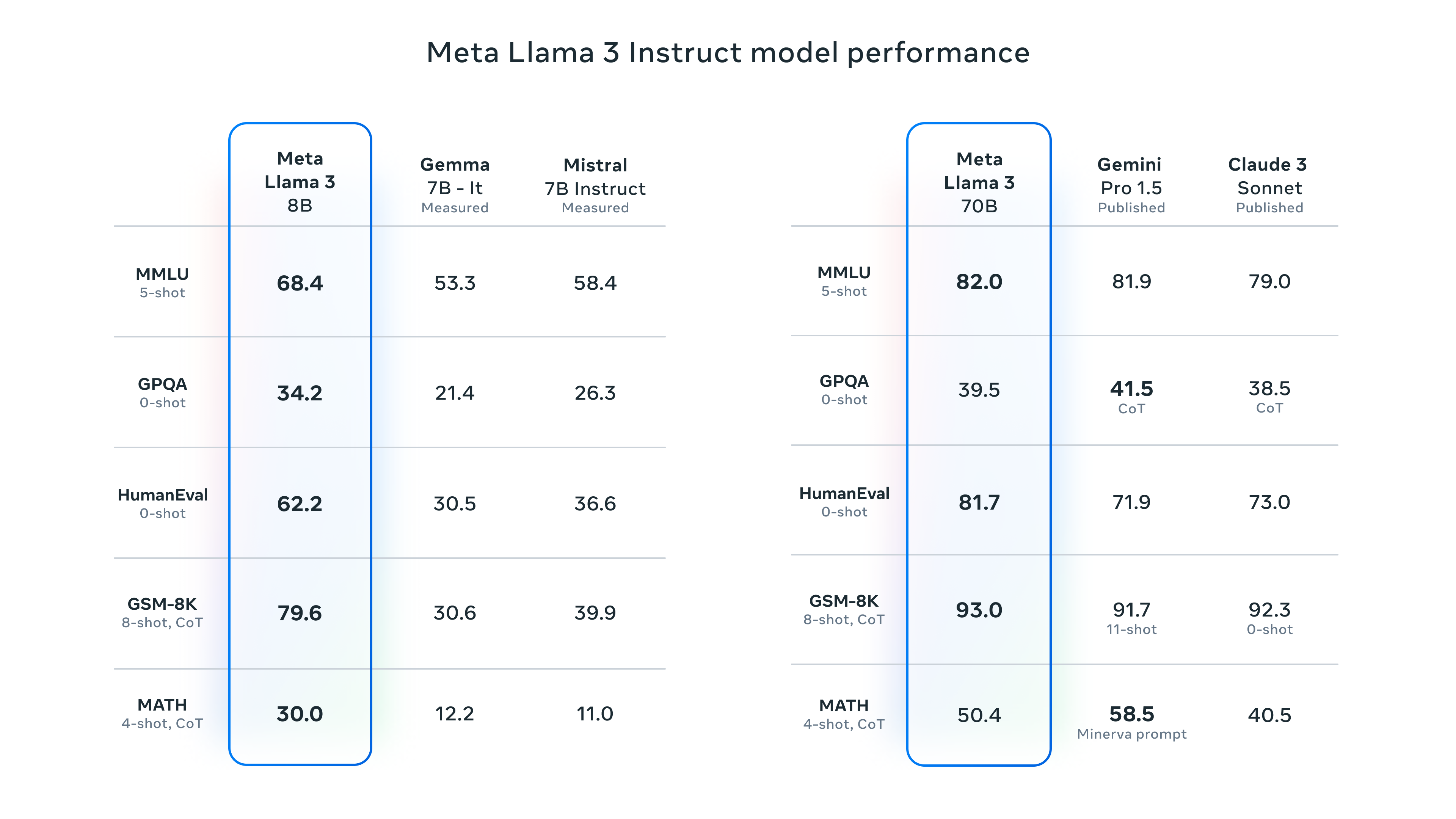Bron: artikel gedeeltelijk overgenomen van Ars Technica
Origineel auteur: Benj Edwards
Yesterday, Meta unveiled early versions of its Llama 3 open-weights AI model that can be used to power text composition, code generation, or chatbots. It also announced that its Meta AI Assistant is now available on a website and is going to be integrated into its major social media apps, intensifying the company's efforts to position its products against other AI assistants like OpenAI's ChatGPT, Microsoft's Copilot, and Google's Gemini.
Like its predecessor, Llama 2, Llama 3 is notable for being a freely available, open-weights large language model (LLM) provided by a major AI company. Llama 3 technically does not quality as "open source" because that term has a specific meaning in software (as we have mentioned in other coverage), and the industry has not yet settled on terminology for AI model releases that ship either code or weights with restrictions (you can read Llama 3's license here) or that ship without providing training data. We typically call these releases "open weights" instead.
At the moment, Llama 3 is available in two parameter sizes: 8 billion (8B) and 70 billion (70B), both of which are available as free downloads through Meta's website with a sign-up. Llama 3 comes in two versions: pre-trained (basically the raw, next-token-prediction model) and instruction-tuned (fine-tuned to follow user instructions). Each has a 8,192 token context limit.

Meta says that the Llama 3 model has been enhanced with capabilities to understand coding (like Llama 2) and, for the first time, has been trained with both images and text—though it currently outputs only text. According to Reuters, Meta Chief Product Officer Chris Cox noted in an interview that more complex processing abilities (like executing multi-step plans) are expected in future updates to Llama 3, which will also support multimodal outputs—that is, both text and images.
Meta plans to host the Llama 3 models on a range of cloud platforms, making them accessible through AWS, Databricks, Google Cloud, and other major providers.
Also on Thursday, Meta announced that Llama 3 will become the new basis of the Meta AI virtual assistant, which the company first announced in September. The assistant will appear prominently in search features for Facebook, Instagram, WhatsApp, Messenger, and the aforementioned dedicated website that features a design similar to ChatGPT, including the ability to generate images in the same interface. The company also announced a partnership with Google to integrate real-time search results into the Meta AI assistant, adding to an existing partnership with Microsoft's Bing.
